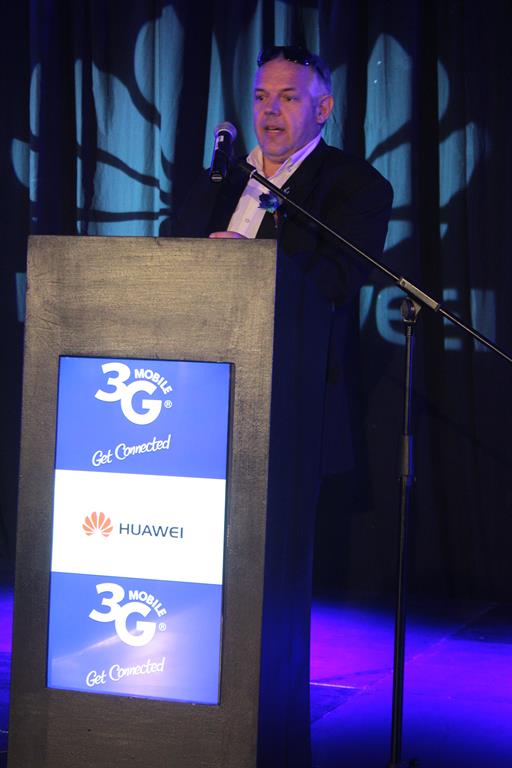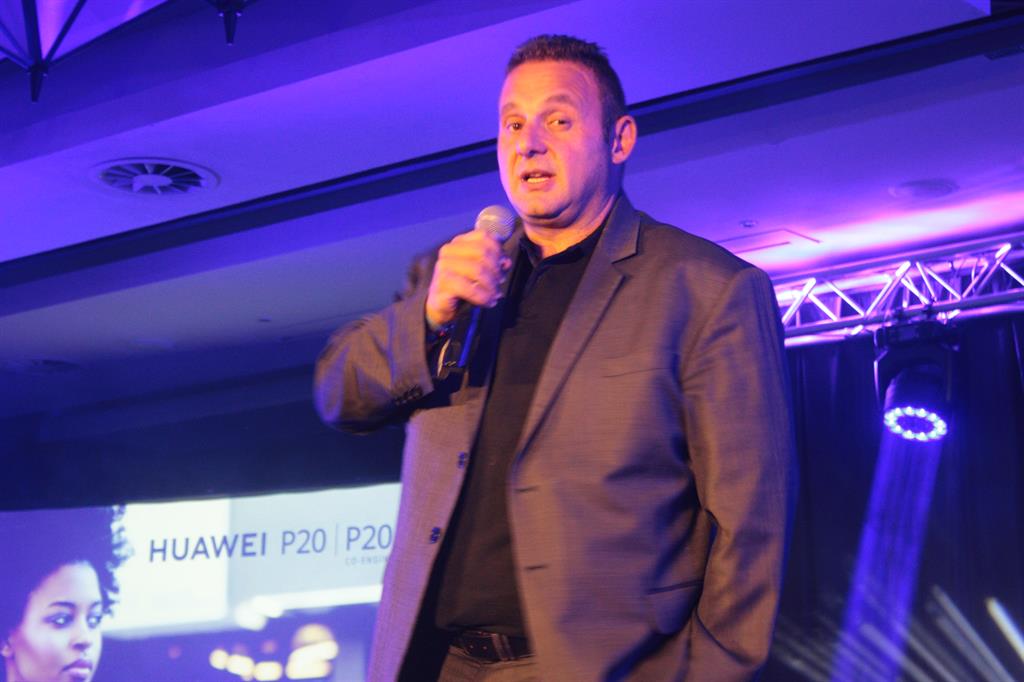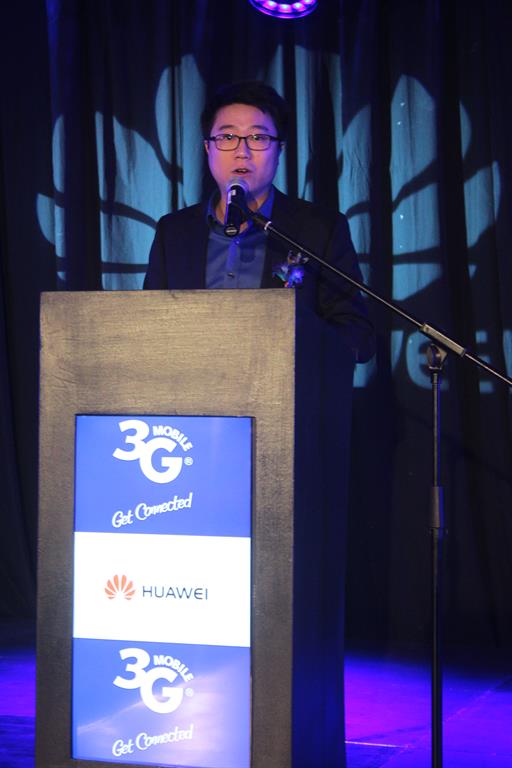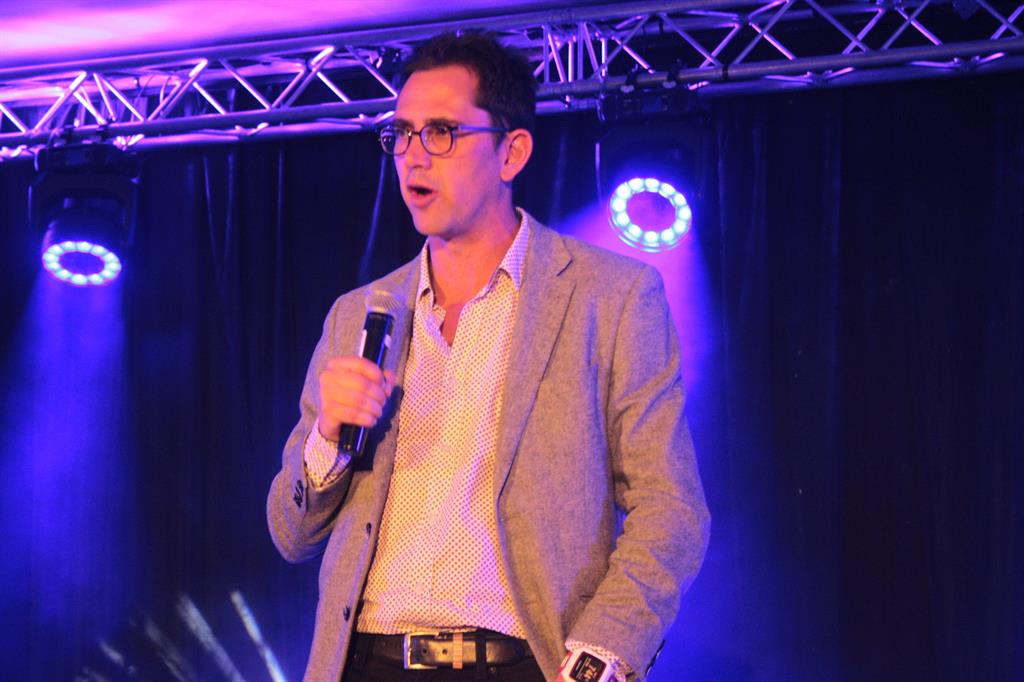Huawei’s P20 snapsation
Smartphone game changer banks on artificial intelligence and pretty pictures.
Augetto Graig - Huawei’s P20 and P20 Pro cell phones were introduced to the Namibian market at the Windhoek Country Club and Resort on Tuesday.
Angelo Prokas, country manager for 3GMobile, welcomed Ian “Liyang” Li, managing director of Huawei for Mauritius, Reunion, Seychelles, Madagascar, Botswana, Zambia, Zimbabwe and Namibia, as well as Brett Levy of Blue Label Telecoms, which bought 3GMobile in December last year for N$1,9 billion.
Also present were Ilan Zwarenstein, 3GMobile’s chief executive officer, and Vinesh Eranah, who heads retail and training for Huawei devices.
Eranah told the audience more about the new phone, which he described as a huge leap in innovation - which explains why it’s called the P20 even though the previous version was the P10.
“Enjoy your memories,” he said, emphasising the incredible picture taking abilities of this smart device.
Three built-in cameras on the P20 Pro are manipulated with the assistance of artificial intelligence (AI), powered by the Kirin 970 chipset. Everything from identifying the subject of the picture to improving composition, for instance by resizing group pictures, is done automatically. The camera technology imbedded was developed in conjunction with German partner company Leica and, according to Eranah, introduces a whole new level of photography.
Other innovations include hand-held night mode, 4K video recording with Dolby cinematic experience sound, predictive focus and super-charge technology so efficient “I can plug my phone into your phone and give you battery life”, Eranah said.
The P20 can charge up to 60% in half an hour and fully in an hour, he said. The phones also feature dual SIM slots, each enabled to 4,5 G, and four antennas for better reception.
Fingerprint and facial recognition synchronise with the adaptive AI to work in tandem with owner preferences, including the ability to name the phone and call it if misplaced.
According to Huawei’s Liyang, artificial intelligence will be a critical factor shaping smartphone competition for the next five to 10 years.
“As AI is seen on more devices, it challenges and drives the mobile industry, from AI apps to software to the ecosystem. Pictures are more beautiful than ever, translation is more accurate, and voice assistants are more convenient,” he said.
Liyang says the impact of artificial intelligence will go even further to transform human-device interaction.
“More importantly, it explores the user’s preference, or may even alter the mobile industry’s business models.”
In recent years Huawei has been gaining global market share in the smartphone market, as well as recognition and status among consumers. In 2016 Huawei controlled 9,5% of the global market share, which increased to 10,4% last year, Liyang said.
“Both the shipment and gross revenue show significant growth. Last month, in South Africa, our market share in terms of value has reached 20% growth, which is a new record for us and shows a much higher acceptance of our high-end product in the South African market,” he said.
Levy echoed Liyang’s appreciation for the brand’s penetration. “Huawei has moved the market in the last couple of years,” he said.
Together with his brother Mark Levy, Brett has built an empire earning N$13,5 billion in revenue for the year ended November 2017, which includes 45% of Cell C.
He said Huawei is no longer a number two brand, but now is a number one brand which has made its name “because of the quality of what you develop and what you deliver”, Brett said.
Angelo Prokas, country manager for 3GMobile, welcomed Ian “Liyang” Li, managing director of Huawei for Mauritius, Reunion, Seychelles, Madagascar, Botswana, Zambia, Zimbabwe and Namibia, as well as Brett Levy of Blue Label Telecoms, which bought 3GMobile in December last year for N$1,9 billion.
Also present were Ilan Zwarenstein, 3GMobile’s chief executive officer, and Vinesh Eranah, who heads retail and training for Huawei devices.
Eranah told the audience more about the new phone, which he described as a huge leap in innovation - which explains why it’s called the P20 even though the previous version was the P10.
“Enjoy your memories,” he said, emphasising the incredible picture taking abilities of this smart device.
Three built-in cameras on the P20 Pro are manipulated with the assistance of artificial intelligence (AI), powered by the Kirin 970 chipset. Everything from identifying the subject of the picture to improving composition, for instance by resizing group pictures, is done automatically. The camera technology imbedded was developed in conjunction with German partner company Leica and, according to Eranah, introduces a whole new level of photography.
Other innovations include hand-held night mode, 4K video recording with Dolby cinematic experience sound, predictive focus and super-charge technology so efficient “I can plug my phone into your phone and give you battery life”, Eranah said.
The P20 can charge up to 60% in half an hour and fully in an hour, he said. The phones also feature dual SIM slots, each enabled to 4,5 G, and four antennas for better reception.
Fingerprint and facial recognition synchronise with the adaptive AI to work in tandem with owner preferences, including the ability to name the phone and call it if misplaced.
According to Huawei’s Liyang, artificial intelligence will be a critical factor shaping smartphone competition for the next five to 10 years.
“As AI is seen on more devices, it challenges and drives the mobile industry, from AI apps to software to the ecosystem. Pictures are more beautiful than ever, translation is more accurate, and voice assistants are more convenient,” he said.
Liyang says the impact of artificial intelligence will go even further to transform human-device interaction.
“More importantly, it explores the user’s preference, or may even alter the mobile industry’s business models.”
In recent years Huawei has been gaining global market share in the smartphone market, as well as recognition and status among consumers. In 2016 Huawei controlled 9,5% of the global market share, which increased to 10,4% last year, Liyang said.
“Both the shipment and gross revenue show significant growth. Last month, in South Africa, our market share in terms of value has reached 20% growth, which is a new record for us and shows a much higher acceptance of our high-end product in the South African market,” he said.
Levy echoed Liyang’s appreciation for the brand’s penetration. “Huawei has moved the market in the last couple of years,” he said.
Together with his brother Mark Levy, Brett has built an empire earning N$13,5 billion in revenue for the year ended November 2017, which includes 45% of Cell C.
He said Huawei is no longer a number two brand, but now is a number one brand which has made its name “because of the quality of what you develop and what you deliver”, Brett said.












Comments
Namibian Sun
No comments have been left on this article